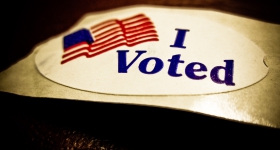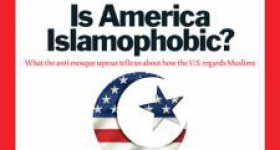Photo Courtesy of KTVU
On March 26, former California State Senator Leland Yee was arrested after a series of FBI
raids in San Francisco and Sacramento. Infamous Chinatown gang member
Raymond “Shrimp Boy” Chow -- who is also the current leader of the Hung Moon Ghee
Kong Tong, a fraternal association in San Francisco -- was among the 25
others arrested with Yee that day. Yee was charged with six counts of campaign donation-related fraud and firearms trafficking.
Following his arrest, Yee resigned
from the primary election for Secretary of State. He had raised over $500,000 in campaign
contributions, which may now be used for his legal defense (source).
Yee appeared in court on April 8 and pleaded not guilty to corruption and
conspiracy charges.
Yee holds a Bachelor’s degree in Psychology from UC
Berkeley, a Master’s degree in Child Psychology from San Francisco State
University, and a PhD in Child Psychology from the University of Hawaii
at Manoa (source). He began his political career in 1988, when he was elected
to the San Francisco Board of Education (source).
In 1996, he was elected to the San Francisco Board of Supervisors (source).
Yee was elected to the California Assembly in 2002, and the
California State Senate in 2006. In 2011, he ran for Mayor of San Francisco, but lost to Ed Lee. He is well known as an advocate for gun control and banning sales of violent video games to minors (source). Earlier this year,
Yee expressed his support for reinstating affirmative action in the UC admissions
process.
While Yee is the first Chinese American elected to California State Senate, the first Asian American to be
Speaker pro Tempore, and the first President of the Asian & Pacific Islander Legislative
Caucus, many in the Asian American community believe that he “turned his back on
Chinese-American interests to win over other groups” (source).
For example, in 2008, Yee, who grew up in San Francisco's Chinatown, opposed a San
Francisco City College extension in Chinatown in favor of the Chinatown Hilton's
interests; Hilton fought new construction to prevent its guests' views from
being obstructed (source).
Yee's present scandal has also unearthed past accusations of
wrongdoing:
- In 1999, Yee was stopped twice by police for
soliciting prostitutes in the Mission District in San Francisco. Yee denied
these accusations, stating he was on his way home.
- In 1994, while working as an administrator for Asian Americans for Community Involvement, a non-profit
focused on improving the health and well-being within the Asian American
community, Yee was accused by former employees of revising medical records to
increase the severity of patients' conditions. When questioned, he claimed
that he was making reports “more precise.” There were no further investigations, and Yee was promoted not long after (source).
- In 1992, Yee was arrested for shoplifting a
bottle of suntan lotion in Keauhou, Hawaii (source).
The case was later dismissed (source).
- In 1991, while serving on the school San
Francisco Board of Education, Yee provided a false address to ensure his children would attend a
better school than the one for which they were zoned. He was asked to
withdraw his children from the preferred school (source).
Given Yee's legal troubles, it isn't surprising that the Asian
American community -- particularly the Chinese American community in San Francisco -- is increasingly concerned with how it may leave Asian Americans in politics more vulnerable to vilification.
Prior to Yee's scandal, the political backlash against Asian
Americans had already taken a negative turn during the 1996 U.S.
Presidential election, when John Huang, Charlie Trie, and Maria Hsia were
accused of collecting foreign campaign donations for the Democratic
Party. Huang, the Democratic Party
fundraiser for Bill Clinton, was charged for violating campaign finance laws.
Trie attempted to donate $460,000 in combined contributions towards the
president’s legal defense fund (source).
Hsia was charged with illegally rerouting funds from the Buddhist Society
Temple to support the Democratic Party (source).
Following these events, the media specifically targeted Asian Americans' involvement in politics as corrupt. After the reelection of President Clinton, the Democratic National Party treated Asian American supporters as strangers. L. Ling-chi Wang covered the controversy in her article “Beyond Identity and Racial Politics: Asian Americans and the Campaign
Fund-raising Controversy”:
The media began employing terms
such as the ‘Asian connection’ and ‘Asian Americans’ as synonymous with
political corruption and foreign subversion of the political process… In fact,
Dole, Perot, and the national media went out of their way to Asianize or
Orientalize the political corruption and to lay the problem of corruption on
several Asian Americans and their so-called ‘foreign connections’ to several
Asian countries…
Now, at a time when growing Asian American populations are still
underrepresented inx U.S. politics, further controversies such as Yee's not only jeopardize our communities' chances to be heard, but also potentially threaten the
ability of future Asian American politicians to contribute and make a difference.









Comments